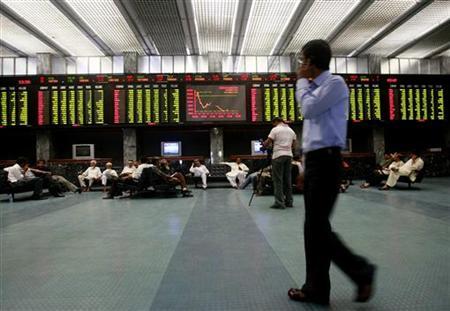
The measure would help give a push to the slowing economy and turn around the world’s worst performing stock market.
“RSIAs (registered savings and investment accounts) could become one of the driving forces in the transformation of Pakistan’s economy,” the PSX stated in a set of budget proposals for the next fiscal year 2019-20 sent to the Ministry of Finance. “By some estimates, 40 million middle-class Pakistanis have an average accumulated wealth of over $10,000 (or around Rs1.5 million), a total of over Rs50 trillion. Much of that wealth is currently invested in real estate, gold and other assets in Pakistan and offshore,” it stated.
“If RSIAs can capture 10% (Rs5 trillion) of that wealth, it would be equivalent to more than half of the current market capitalisation of PSX listed companies or more than the outstanding amount of PIBs (Pakistan Investment Bonds - the long-term government securities) and Sukuk (Islamic bonds),” it articulated in the budget proposals.
“It is proposed that the government of Pakistan should introduce a mechanism and regulatory structure for the launch of registered savings and investment accounts (RSIAs) to help channel savings towards productive investments,” it said. RSIAs will help bring capital from the large undocumented sector into the formal economy. Furthermore, it is also crucial that firm guarantees are offered so that “contributions are subject to full amnesty - aside from AML (anti-money laundering) and terrorist financing issues due diligence,” said the PSX. Savings and investment are crucial for playing an important role in the socio-economic development through capital accumulation. Pakistan, besides facing problems, such as unemployment, rapid growth of population and slow economic growth, has a savings rate that is meagre and undesirable for sustainable national economic development.
Low levels of savings in any economy have been cited as one of the most serious constraints to sustainable economic growth. “Higher savings and related increase in capital formation can result in a permanent increase in economic growth rates,” it said.
Avoiding looming pension crisis
In the budget proposals for FY20, the PSX also urged the government to create a pension fund and invest that in the stock market. This will gradually help address the growing burden of paying pensions in future as returns from the fund may be utilised to pay pensions.
This, in other words, would be a win-win situation for both; the government and the PSX, as the stock market would get a source of investment and help the government reduce the growing burden of arranging financing in future.
At present, Pakistan’s pension scheme for government employees is a non-funded, pay-as-you-go scheme. The government exclusively finances the pension expenditure by creating a provision in the annual budget for this purpose.
“This has all the making of an impending pension crisis in future and places unfair burden on future generations,” remarked the PSX.
Governments in various countries have actively worked to provide financial security for their aging populations by maintaining adequately-funded pension funds. These pension funds invest in a diversified range of global assets, including equities, bonds, mutual funds, extended exchange-traded funds (ETFs) and even real estate, infrastructure and alternative assets, it said.
No capital gains tax for foreigners proposed
The PSX has also proposed to the federal Ministry of Finance that there should be no capital gains tax (CGT) on disposal of securities for foreigners. The measure would help attract more and more foreign investment in the companies listed at the bourse.
“In line with the practice in peer markets, and to attract foreign capital to Pakistan, it is proposed to exempt the imposition of capital gains tax on disposal of securities for foreign investors.
CGT for local investors?
However, the government should align the rate of capital gains tax on disposal of securities by local investors with the rate of CGT on sale of immovable property, using similar slabs of holdings period as those on real estate. There are four CGT slabs on real estate and the maximum rate of tax is 10%. There is zero CGT on the sale of property after three years.
Published in The Express Tribune, June 4th, 2019.
Like Business on Facebook, follow @TribuneBiz on Twitter to stay informed and join in the conversation.

















COMMENTS
Comments are moderated and generally will be posted if they are on-topic and not abusive.
For more information, please see our Comments FAQ